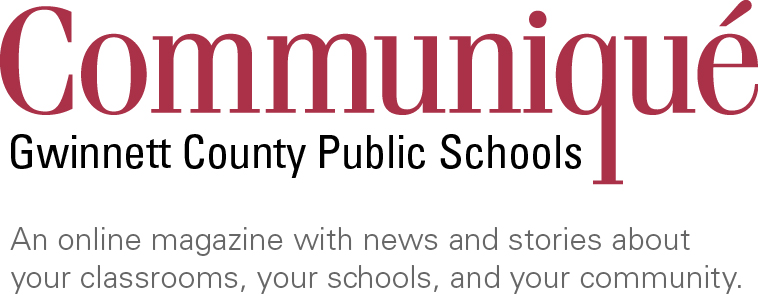Veterinary Science is the “perfect combination” of Andrew Byron’s interests—animals and medicine—as he pursues a career in Veterinary Pathology. “My ultimate goal is to work for the CDC to identify and treat zoonotic diseases,” says Andrew, who is on a path to his career goals with classes at Grayson HS Technical Education Program. “Taking a veterinary medicine class allows me to build a foundational understanding of what will be required of me in veterinary school… and opens doors for new opportunities to learn alongside veterinary professionals as I work toward my career goals.”
A unique partnership that benefits students at both Grayson and Gwinnett Technical College grew out of a conversation between Jennifer Allen, RVT, a Veterinary Science instructor at Grayson and Dr. Ryan Cheek, program director for the Veterinary Technology Program at Gwinnett Tech
Explains Dr. Cheek, “I was telling her that we needed a place for us to do surgery that closely emulated a real clinical setting, and she was talking about how she needs more clinical opportunities for her students.” The result? A first-of-its-kind veterinary surgical suite at Grayson that is used for elective surgical procedures, such as spaying and neutering, for cats and dogs. (The Gwinnett County Animal Shelter sponsors the animals for adoption after recovery.)
Grayson’s surgical suite and surgery prep area include the same equipment that students would see in a veterinary hospital. Experienced veterinarians perform all surgeries—assisted by Gwinnett Tech Veterinary Technology students with support from Grayson students who gain valuable experience as they observe, keep records, and obtain vital signs of the four-legged patients.
Ms. Allen notes that the partnership is a win for all involved. Dr. Cheek agrees, “I want the students to get some hands-on experience in a medical facility. This partnership gives all of the students an opportunity to work with real patients that are getting real procedures done.”
The Grayson program also places interns with independent private veterinary practices and in research settings.
“Without working with animals and seeing authentic procedures, it is difficult for students to achieve a firm understanding of the profession and all that it entails,” says Ms. Allen.
For Andrew, classwork about physical exams and vital signs is reinforced in the surgical suite. “Under Dr. Cheek, I have witnessed physical exams done on patients during pre-operation preparations, measured the heart rate/respiration rate/pulse of a dog, and read the patients' vital signs while they were in surgery.”
Those hands-on opportunities are helping Andrew and his classmates explore possible careers in the field—whether pursuing a position in a research lab or considering a career as a veterinarian or vet technician.



